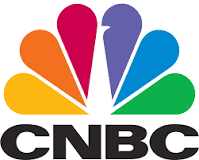U.S. President Donald Trump announces a deal with Pfizer to lower Medicaid drug prices in the Oval Office of the White House on Sept. 30, 2025 in Washington, DC.
Win McNamee | Getty Images
President Donald Trump on Tuesday announced an agreement with Pfizer to voluntarily sell its medications for less, as his administration pushes to link U.S. drug prices to cheaper ones abroad.
Pfizer has agreed to take measures to reduce U.S. drug prices, including selling its existing drugs to Medicaid patients at the lowest price offered in other developed nations, or what Trump calls the most-favored-nation price, according to the president. Pfizer will also guarantee the same "most-favored-nation" pricing on its new drugs for Medicare, Medicaid and commercial payers.
As part of the deal, Pfizer has also agreed to a three-year grace period during which the company's products won't face pharmaceutical-specific tariffs – as long as the drugmaker further invests in U.S. manufacturing. The company plans to invest $70 billion to reshore domestic drug manufacturing and research facilities.
Shares of Pfizer rose more than 4% on Tuesday after the announcement.
"Pfizer has agreed to provide some of the most popular current medications to our consumers at heavily discounted prices anywhere between 50% and even 100%," Trump said, adding that those drugs will be available for direct purchase at a discount online on a website the administration is calling TrumpRx.gov.
Trump said he's working with other drugmakers to secure similar agreements over the next week, adding that Pfizer is the first.
"If we don't make a deal, we're going to tariff them," he said of the other companies' drugs.
The deal comes as Pfizer and 16 other drugmakers face Trump's Monday deadline to take steps to lower drug prices, as outlined in letters from the president. Trump in May signed an executive order reviving a controversial plan, the "most favored nation" policy, that aims to tie the prices of some medicines in the U.S. to the significantly lower ones abroad.
During the press conference, Pfizer CEO Albert Bourla said the company satisfied all four of the requests Trump outlined in his letter. Among the other steps is pursuing tougher price negotiations abroad and adopting models that sell its medicines directly to consumers or businesses.
"The big winner clearly will be the American patients, there is no doubt," Bourla said. "They are the ones that will see a significant impact on their ability to buy medicines." But he said "American innovation and and the American economy" will also be "winners" with the agreement.
Pfizer's discounted drugs
Pfizer said it will offer a large share of its primacy care treatments and certain specialty branded drugs at discounts of 50% on average and up to 85%, according to a release from the company.
In a separate statement Tuesday, Pfizer said more than 100 million patients are impacted by diseases those medicines treat, such as migraines, rheumatoid arthritis, menopause and atopic dermatitis.
The company provided examples of discounted drugs under TrumpRx.gov. Duavee, a treatment for certain menopause symptoms, will be available for as little as $30 on the site, which is an 85% discount to its current price.
Patients will also be able to pay as low as $162 – an 80% reduction to the current price – for prescription ointment Eucrisa, which is used to treat mild-to-moderate eczema. Tovias, a medication for overactive bladder, will also be available on TrumpRx.gov for as little as $42, which is a 85% discount to the current price.
Pfizer said it also plans to offer products such as Abrilada for autoimmune diseases at a 60% discount, Xeljanz for rheumatoid arthritis at a 40% discount and the migraine drug Zazvpret at 50% discount.
Those drugs don't appear to be significant revenue drivers for Pfizer. The company's quarterly and full-year earnings reports only include product-specific revenue for Xeljanz, which generated $349 million in worldwide sales in 2024. Sales of the drug fell 29% operationally from 2023, primarily due to lower demand globally as well as lower net prices in the U.S.
The deal comes as drugmakers brace for Trump's planned tariffs on pharmaceuticals imported into the country. Trump said in a Truth Social post Thursday that the U.S. will impose a 100% tariff on "any branded or patented Pharmaceutical Product" entering the country from Oct. 1.
The measure will not apply to companies building drug manufacturing plants in the U.S., Trump said. He added that the exemption covers projects where construction has started, including sites that have broken ground or are under construction.
In a note on Tuesday, BMO Capital Markets analyst Evan Seigerman said the deal is positive for Pfizer's stock and the broader pharmaceutical sector, as it "adds certainty and shifts POTUS policies potentially away from Pharma tariffs."
"Today's deal seems to set a path for other pharmaceutical players to follow, allowing for headline pricing concessions and a Trump 'win' without more punitive implementation" of the most favored nation policy or tariffs, he added.


 1 month ago
1 month ago














